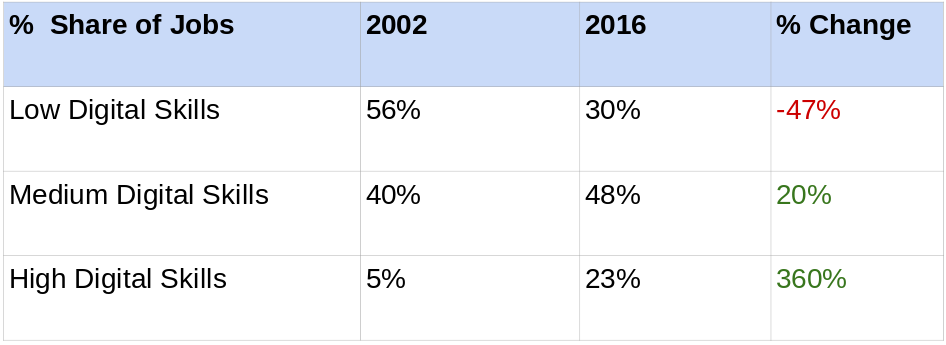The Economic Impact Of WiFi Connection
Providing free WiFi in public libraries improves communities. Internet should be viewed as an investment, not a cost, to public institutions. This blog explores the theories that support these statements and outlines the research that proves the economic impact of a WiFi connection.
More than 200 hundred years ago, Adam Smith stated that “the wealth of nations included the acquired and useful abilities of all the inhabitants or members of the society.” Acquired abilities that are useful for production is a type of capital realized in that person. He said that wealth is the stream of goods and services that a person or group controls or creates. Capital is “that which can create revenue now or in the future.” Outside of tangible items like land or machinery, acquired skills and abilities that are useful for production is a type of capital an individual can hold. The basic concept is that investments in individuals through education can be measured based on the economic value they contribute to society using acquired skills.
In the 1960s, Theodore Schultz introduced an economic research agenda that included the study of human capital. His findings were that ‘costs’ of education and training were actually investments that provided future income flows. Since then, human capital means investments in people that provide economic benefits.
How does this theory relate to WiFi access?
Access to education is related to access to internet access and WiFi. This is especially true in COVID times when many schools are doing remote learning instead of, or in conjunction with, in-person classes. In addition to education, the percentage of jobs that require technology skills (which often require the internet to obtain) or are done primarily through the internet, is increasing.
According to the Brookings Research Institute, the percentage of jobs that require technology skills (which require the internet to obtain) or are done primarily through the internet, are increasing.
Jobs that had low digital skills requirements have decreased by almost 50%. Jobs with medium digital skills requirements have increased by 20%. And jobs with high digital skills requirements have increased by 360%. If this trend continues, high digital requirements jobs will replace low digital skills requirements jobs over the next decade. Also, there are certain skills that are technology-related that are primarily learned through access to the internet.
The chart below shows the percent of jobs that require digital skills on top of just access to the internet.
Education is the mechanism that gives an individual the personal ‘capital’ to be able to get a job in today’s digital world. And access to education is tied to internet access.
But, equal access for everyone isn’t the case for 24 million Americans with no internet access. Lack of access is more pronounced in rural areas. In efforts to promote digital inclusion, the public library’s role is to bridge the digital divide and create strong economies, communities by offering WiFi at their locations.
The ROI of public libraries in their communities.
Research shows that library programs and advocacy efforts directly impact communities and economies in a positive way. This supports the human capital theory and proves that investing in individuals (via access to the internet, thus education), provides a positive ROI for the community.
For every dollar of direct spending on operations payroll, libraries generate $0.53 in additional spending in the economy of Minnesota. In the same way, for every dollar of direct spending on operations services, libraries generate $0.74 in additional spending in Minnesota’s economy. Another recent study shows that for every dollar invested in Ohio public libraries, Ohioans received $5.48 in economic value.
By investing in libraries and free public WiFi, communities can adopt the digital human capital theory to create stronger local economies and connected communities. Internet access is important for basic services, education, and employment. Internet access gives people the ability to improve their personal station and by doing so contributes to community wellness.
WhoFi provides libraries with wireless session counts, for advocacy, operational improvements related to the patron experience, and for the annual PLS and state surveys. To learn more about how libraries can use WiFi insights to improve patron services, schedule a demo to see how it all works.

